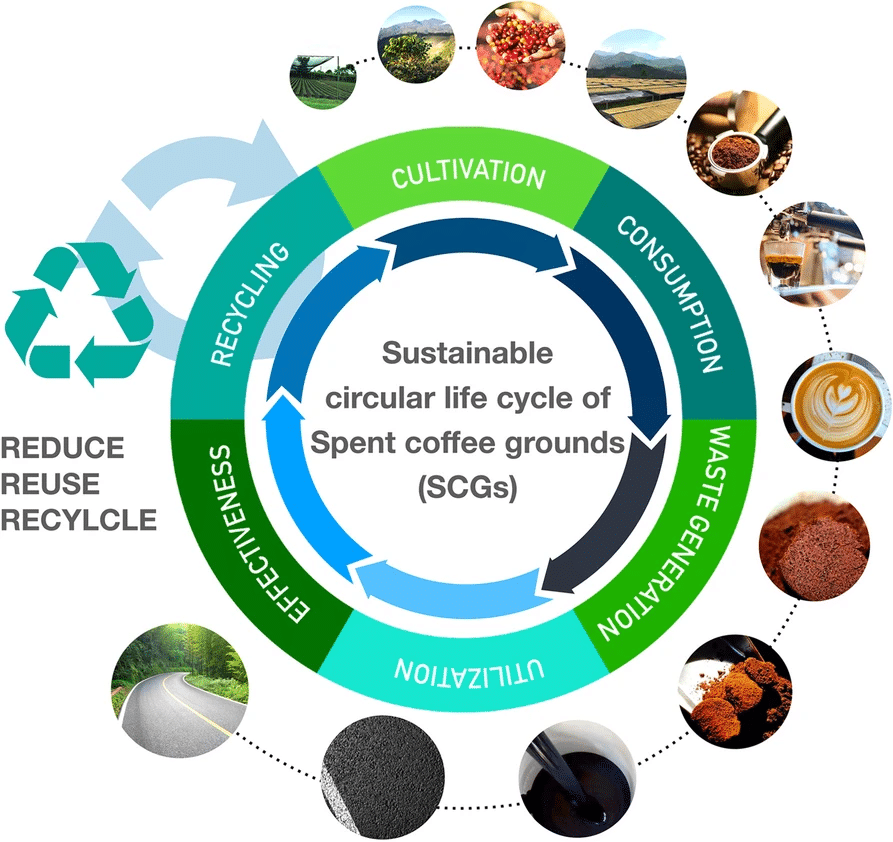Coffee Waste Could Make Roads Better and More Sustainable
Scientists Turn Used Coffee Grounds into Road Construction Material

Scientists have found a new way to use coffee waste that could help build better roads while solving an environmental problem. Researchers discovered that spent coffee grounds (SCGs) – the leftover coffee powder after brewing – can be mixed into asphalt to improve road performance.
Every day, coffee shops and factories throw away millions of tons of used coffee grounds. Instead of letting this waste go to landfills, scientists tested whether it could strengthen the black tar-like substance called asphalt binder that holds roads together. This approach supports sustainable construction by recycling waste materials that would otherwise harm the environment.
The research team used several advanced scientific methods to test their idea. They analyzed the coffee-asphalt mixture using Fourier transform infrared spectroscopy (FTIR) to see how the materials bonded together, differential scanning calorimetry (DSC) to measure temperature changes, dynamic shear rheometer (DSR) to test flexibility, and Brookfield viscosity rheometer to check thickness. These tests confirmed that used coffee grounds can work as effective bio-waste modifiers in sustainable road construction.
The results showed that adding coffee grounds to asphalt works mainly through physical reinforcement, meaning the coffee particles physically strengthen the asphalt rather than changing its chemical structure. When researchers compared regular asphalt with coffee-modified asphalt, they found that the right amount of coffee grounds improved the material’s ability to resist damage from vehicle traffic and perform better in hot weather conditions.
The most impressive results came from testing cold weather performance. Asphalt mixtures containing 1% and 3% coffee grounds showed remarkably better stability in low temperatures compared to regular asphalt. This is important because cold weather often causes roads to crack and develop potholes, leading to expensive repairs.
However, the scientists discovered that using too much coffee grounds can cause problems. When they added excessive amounts of coffee waste to the asphalt, the material’s practical performance became notably weaker. This finding highlights the importance of using the right proportions before applying this technology in real road construction projects.
The research demonstrates that recycling coffee waste into road materials offers a promising solution for sustainable infrastructure development. By turning biological waste into useful construction materials, this approach addresses two challenges simultaneously: reducing waste disposal problems and creating stronger, more durable roads. The key to success lies in finding the optimal amount of coffee grounds to add, ensuring that roads benefit from improved performance without compromising their structural integrity.
Observer Voice is the one stop site for National, International news, Sports, Editor’s Choice, Art/culture contents, Quotes and much more. We also cover historical contents. Historical contents includes World History, Indian History, and what happened today. The website also covers Entertainment across the India and World.

